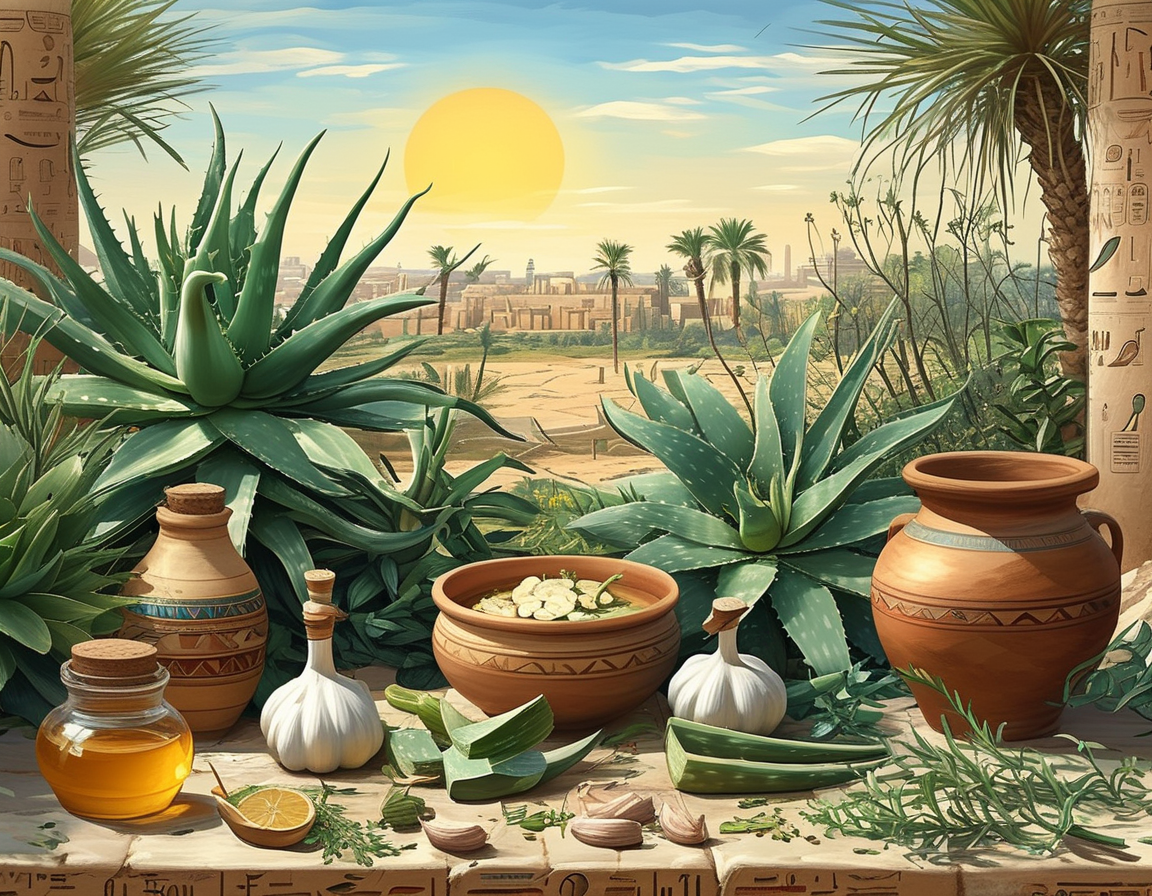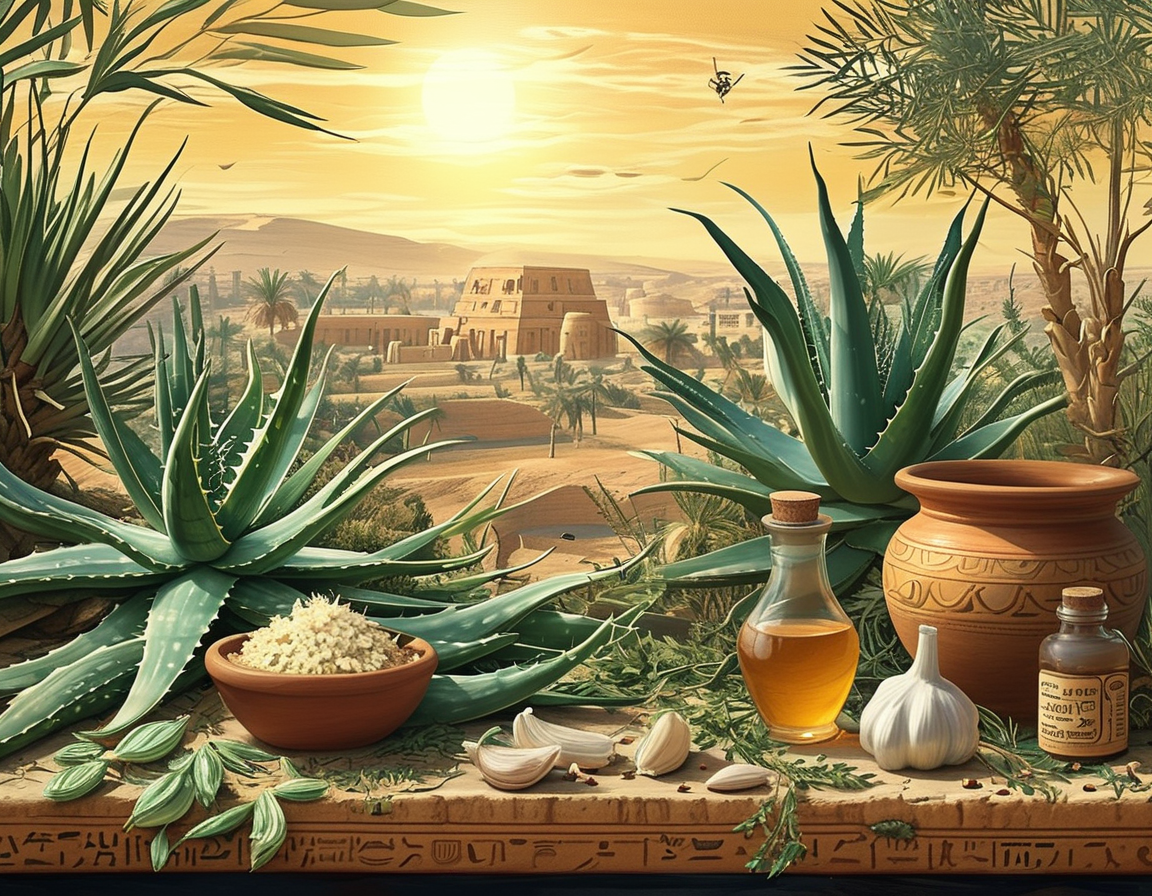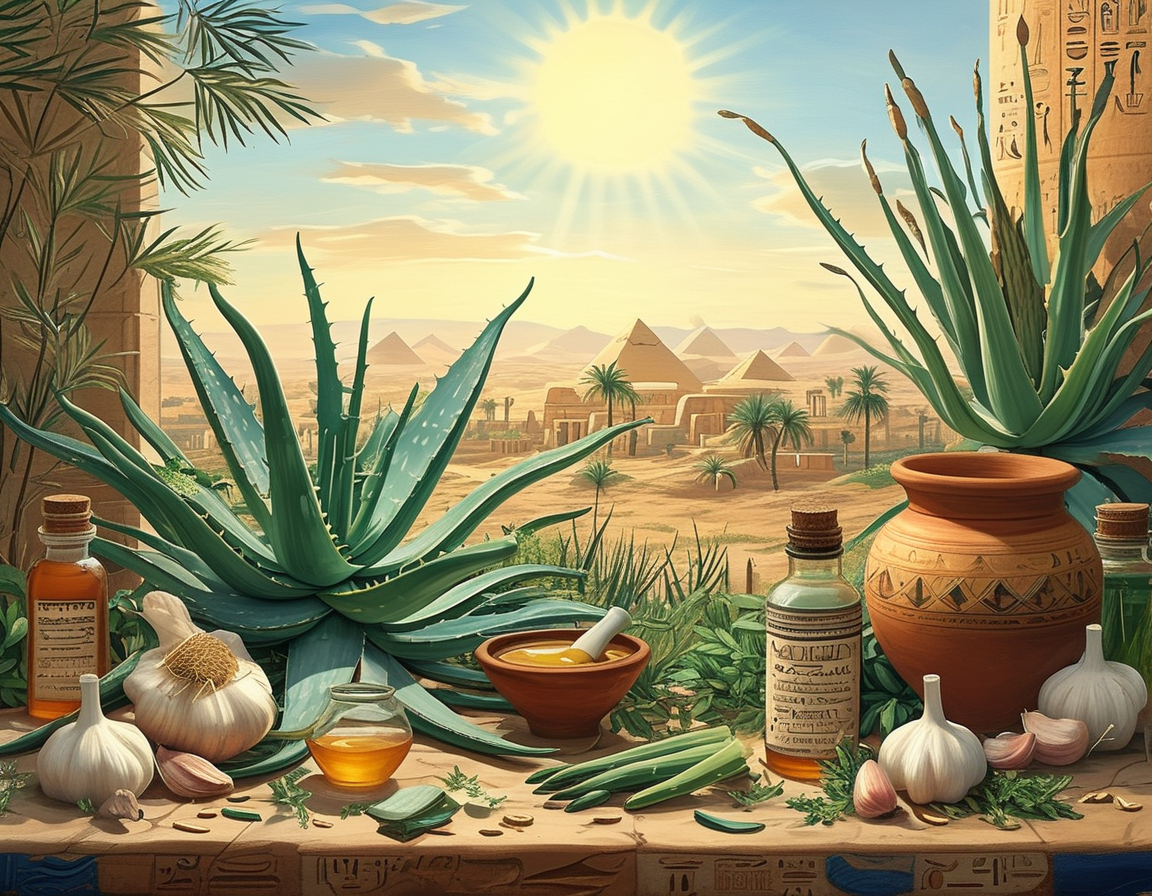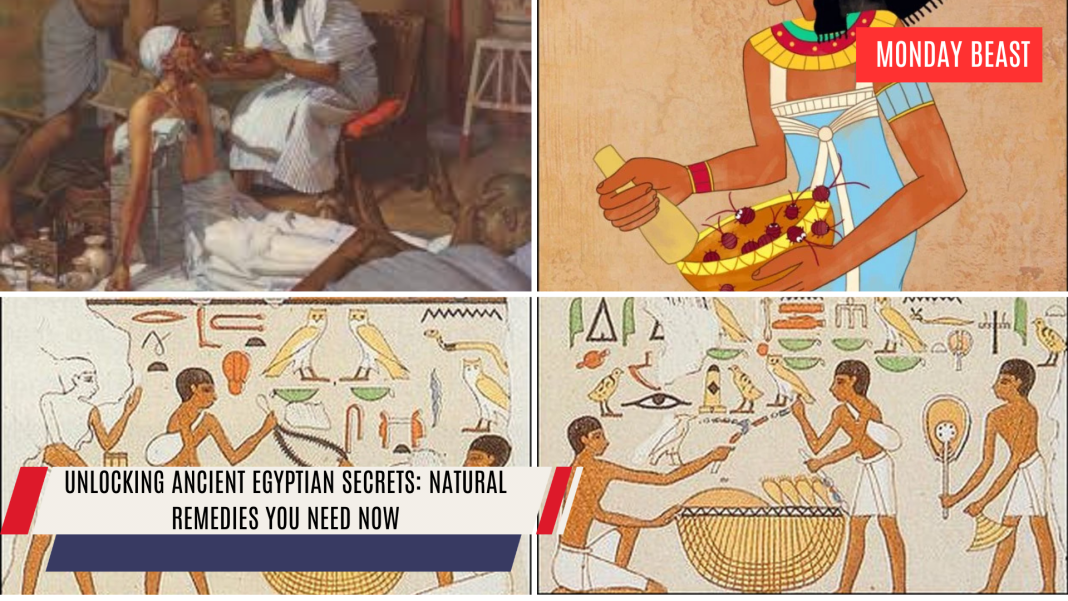Herbal Medicine
Did you know that the ancient Egyptians were ahead of their time in natural healing? Their understanding of plants allowed them to create powerful remedies from nature. Let’s dive into their most intriguing herbal treatments.
Aloe Vera
Aloe vera was a prized leaf in ancient Egypt. Egyptians commonly applied its gel to burns and cuts. Imagine a world where such a simple plant could soothe your skin. Its cooling properties offered instant relief and expedited healing.

They saw aloe as a miracle of sorts. Perhaps that’s why the plant became a staple in many households. Even today, we recognize its extraordinary effects.
Garlic
Garlic wasn’t just a kitchen staple, it was also a prized medicine. The ancient Egyptians knew garlic could fight infections. It’s hard to imagine a time when someone wouldn’t want to pop a clove before dinner.
Garlic was consumed in various forms, either raw or mixed. Some believed it warded off the plague. What if this simple bulb held more power than we realized?
Honey

Next on the list is honey. This golden substance was revered for its unique properties. Honey has long been valued as a natural antiseptic.
When applied to wounds or taken for coughs, it seemed almost magical. The Egyptians knew what they were doing when they incorporated honey into their remedies.
Essential Oils and Resins
Frankincense
Frankincense is like an ancient gift from the earth. Its aroma has charmed people for ages. Egyptians used it as an anti-inflammatory remedy for arthritis.

They didn’t just inhale the beautiful scent; they embraced its healing properties. Just think, burning frankincense in your home can invoke peace and healing.
Myrrh
Then there’s myrrh, another fascinating resin. Myrrh acted as an antiseptic, helping wounds heal properly. It almost feels like a time capsule that continues to provide.
The ancient Egyptians carried this treasure with them everywhere. Isn’t it amazing how they blended the sacred with the medicinal?
Diet and Nutrition
Some people overlook the importance of diet in healing. This was not the case for ancient Egyptians. They knew natural food supported their health.
Onions
Onions were not just added for flavor; they had healing qualities too. They believed onions improved circulation and boosted immunity.
Imagine serving up a fresh onion salad with our meals today. It might just be the remedy we need for our immune systems.
Dates
Dates weren’t mere snacks. Packed with energy, they were a staple in ancient diets. They treated digestive issues, giving the digestive system a helping hand.
What if this simple fruit held the key to vibrant health? Eating dates could help us embrace the ancient wisdom of wellness.
Holistic Practices
Then there’s the holistic aspect of healing. Ancient Egyptians understood the harmony of body, mind, and spirit. This often involved massage and essential oils.
Massage and Aromatherapy
Imagine being massaged with oils infused with herbs. The gentle pressure and aromatic scents must have felt like heaven. Unlike today’s hustle, they embraced calm.
They frequently used oils like sesame and almond for treatment. It’s curious how such simple practices hold profound effects even today.
Spiritual Healing
The Egyptians believed in spiritual dimensions to health. They performed rituals and wore amulets. Could this be why they seemed to thrive in ancient times?
Divine intervention and inner harmony could connect everything. It’s fascinating to ponder how mind, body, and spirit work together in healing.
Conclusion
In closing, ancient Egyptians were wise beyond their time. Their knowledge of natural remedies tells a story of respect for nature’s bounty. They found holistic paths to health that resonate even today.
These practices remind us of what’s possible if we look to nature for healing. It raises the question: Are we ready to rediscover these ancient secrets? The answers are intertwined with the wisdom of the ages.




